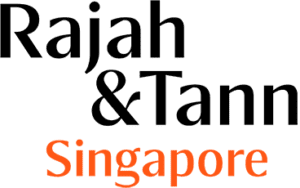Introduction
With effect from 29 October 2025, the Singapore Exchange Regulation (“SGX RegCo“) revised the Singapore Exchange Securities Trading (“SGX-ST“) Mainboard Rules and Catalist Rules to streamline the listing admission criteria and adopt a more disclosure-based approach, while also recalibrating post‑listing interventions. The changes seek to implement measures recommended by the Equities Market Review Group (“Review Group“), which was established by the Monetary Authority of Singapore (“MAS“) to strengthen the competitiveness of Singapore’s equities market.
The amendments include the following:
Listing admission criteria
- Refining the quantitative admission criteria for the SGX-ST Mainboard – in particular, lowering the profit test threshold for new listings from S$30 million to S$10 million; and
- Streamlining the qualitative admission criteria for the SGX-ST Mainboard by shifting from prescriptive measures to requiring disclosure of material issues (e.g. internal control weaknesses, conflicts of interest). Key criteria will be retained to ensure that only issuers with strong governance and financial health are listed (e.g. unmodified audit opinions, confirmation of requisite approvals and compliance).
Post-listing intervention
- Limiting trading suspensions to cases where there is clear evidence of going concern issues;
- Prioritising private engagement with issuers on their disclosures, while continuing to require public disclosure of materially price-sensitive or trade-sensitive information; and
- Removing the Financial Watch-list, while requiring issuers to disclose their third and subsequent consecutive financial year (“FY“) of losses.
This Update highlights and provides an overview of the key changes introduced.
Background
The amendments follow from the consultation papers issued by SGX RegCo and MAS on “Streamlining of Prospectus Requirements and Broadening of Investor Outreach Channels” and “A Shift to a More Disclosure-Based Regime“, respectively. The public consultations on the proposed measures were conducted from May to June 2025. For more information on the Consultation Papers, please see our earlier Legal Update here.
On 29 October 2025, SGX RegCo issued a Response Paper titled “A Shift to a More Disclosure-Based Regime“, responding to comments from the consultations and indicating that broad support was received for the proposed measures. The Response Paper set out the changes to be made to the listing criteria and post-listing oversight, which took effect on the same day.
- Refining the Quantitative Admission Criteria
Profit Test
The main change with regard to the quantitative criteria for admission to the Mainboard is the lowering of the profit test threshold. This acknowledges that pre-revenue companies with strong growth potential in emerging industries may be suitable for Mainboard listing, even if they may not meet traditional financial criteria.
To be eligible for listing, an applicant must satisfy at least one of three quantitative financial criteria. Among them, the profit test had previously required a listing applicant to have a minimum consolidated pre-tax profit of at least S$30 million for the latest FY, and have an operating track record of at least three years.
SGX RegCo has now lowered the profit test requirement from S$30 million to S$10 million, aligning with other major exchanges. The revised profit test threshold will continue to apply to an issuer’s latest FY. However, the exception for temporary low profits has been removed.
Life Sciences Companies
Taking into account the unique circumstances of the life sciences industry and to allow for the listing of companies that show strong growth potential, SGX RegCo has refined the admission requirements for life science companies as follows:
- The minimum operating record is reduced from three years to two years;
- Issuers are required to be primarily engaged in laboratory research and development of their identified products for at least one year; and
- The successful development of at least one identified product beyond the concept stage is required.
With regard to disclosures for life sciences companies, SGX RegCo has clarified as follows:
- Patents and patent applications will no longer have to be submitted to SGX. However, details of patents and the progress of patent applications must be disclosed in the prospectus.
- Since there may potentially be commercially sensitive information which an issuer may be unable to disclose, unless the Securities & Futures (Offers of Investments) (Securities and Securities-based Derivatives Contracts) Regulations 2018 (“SFR“) otherwise requires, SGX RegCo will not require disclosure if: (i) such disclosure would reveal highly sensitive confidential information; and (ii) the issuer discloses the reason for the non-disclosure of such information.
Previously, life science companies were required to raise funds from institutional investors, accredited investors or other relevant persons in the period of six months or more prior to the listing application. SGX RegCo has retained this timeframe, but has clarified that “relevant persons” should include foreign investors of a similar profile to institutional investors and accredited investors as defined in the Securities and Futures Act 2001.
- Streamlining the Qualitative Admission Criteria
More Disclosure-Based Approach
SGX RegCo indicated that it received strong support for its proposal to shift to a less prescriptive, more disclosure-based and market-driven approach towards qualitative criteria for admission to the SGX-ST Mainboard, focusing on information that may affect the decisions of investors. The SGX-ST Mainboard Rules provide that an issuer’s suitability for listing depends on qualitative factors such as its directors, management and controlling shareholders, its financial position, and disclosures provided in its offer documents.
As the market shifts towards a more disclosure-based approach, SGX RegCo indicates that regulatory oversight over corporate disclosure and trading activity would be strengthened by: (i) enhancing avenues of recourse for investors in market misconduct cases pursuant to the proposals set out in the MAS “Consultation Paper on Measures to Enhance Investor Recourse Avenues in Market Misconduct Cases” which remains open for public consultation until 31 December 2025; and (ii) advancing research coverage of issuers in Singapore’s equity market pursuant to enhancements to the Research Development Grant under the MAS Grant for Equity Market Singapore Scheme.
Conflicts of Interest
Previously, listing applicants were required to resolve or mitigate conflict situations, prior to listing.
With effect from 29 October 2025, issuers (other than real estate investment trusts (“REITs“) or business trusts) are no longer required to resolve their conflicts of interest, but must disclose the conflicts in the offer documents, including the measures (if any) to resolve or mitigate them. If the conflicts are not resolved or mitigated, the issuer must explain why. All conflicts of interest, not just material ones, must be disclosed. Instead of delving into the explanations disclosed by the issuer, SGX RegCo focuses on ensuring that the explanatory disclosure is sufficiently detailed so that investors can have a full and proper understanding and decide for themselves the appropriateness of the approach taken.
For REITs and business trusts, conflicts must still be resolved or mitigated before listing. SGX RegCo noted concerns raised in the public consultations that inherent conflicts of interest may warrant stricter safeguards for such structures. For example, the use of rights of first refusal (“ROFRs“) to resolve conflicts of interests in initial public offerings (IPOs) has its virtues in the REIT framework. This is because conflicts of interest are inherent in the REIT structure as the sponsor may own properties or come across new properties that fall within the REIT’s investment mandate. Retaining ROFRs in this context thus boosts investor confidence that the interests of REIT will be prioritised and ensures a pipeline of assets from the sponsor, thereby contributing to the success of Singapore’s REIT framework.
The SGX-ST Mainboard Rules are aligned with the SFR in distinguishing between conflicts of interest and interested person transactions (“IPTs“). An interested person’s (“IP“) transaction with an issuer only constitutes a conflict of interest that must be disclosed by an issuer if the IP has an interest in a competitor business. IPTs are defined as transactions between an IP and the issuer, its subsidiary or associated company. SGX RegCo highlighted that amendments to align the definitions of “entity at risk”, “IP” and “transaction” in the SFR with the definitions in the Mainboard Rules were the subject of the earlier MAS consultation paper on “Proposals to Streamline Prospectus Requirements and Broaden Investor Outreach Channels for Initial Public Offerings” which was published for public consultation from 15 May 2025 to 14 June 2025.
Internal Controls
Previously, issuers were required to confirm the non-materiality of any weaknesses in their internal control and accounting systems.
Following the amendments, issuers will no longer be required to issue such confirmation, but must adequately disclose: (i) the material weaknesses in an issuer’s internal control and accounting systems; and (ii) the steps to address them, which may continue after listing.
The materiality of internal control weaknesses, as well as the appropriate timeline for rectification, will continue to be a matter for the professional judgement of the issuer’s board of directors (“Board“) and Audit Committee. Further guidance on the assessment of internal controls, including financial controls, by the Board and Audit Committee are set out in Practice Note 12.2 of the Mainboard Rules and Practice Note 12B of the Catalist Rules, respectively.
Regulatory Approvals and Legal Compliance
Following feedback, SGX RegCo has stated that issuers must continue to confirm they have obtained requisite approvals and comply with laws and regulations that would materially affect operations. Waivers may be sought in cases where there is a demonstration of hardship for an issuer to provide such confirmations, with the issuer to provide appropriate justification and disclosure.
The retention of this requirement is in acknowledgement of the concern that there is a real risk of investors being unable to fully appreciate the nuances and implications of the disclosures in the area of legal and regulatory compliance.
Financial Position
SGX RegCo has implemented the following changes relating to a listing applicant’s disclosures relating to its financial position:
- Audited financial statements submitted with the listing application must be unmodified (i.e. not subject to an adverse opinion, qualified opinion, or disclaimer of opinion by the auditors).
- Loan or debt arrangements between a listing applicant group and its directors, substantial shareholders, and companies controlled by its directors and substantial shareholders, will no longer be prohibited. However, such arrangements are IPTs and related-party transactions, and must still be disclosed under the SFR and the relevant accounting standards.
- A listing applicant will not be restricted from using revaluation surplus to calculate their net tangible assets per share or to issue bonus shares.
- Restriction on shorter-term leases has been removed, but a listing applicant must disclose whether its property portfolio comprises of predominantly shorter-term leases, the risks and implications of such a portfolio, and any plans to manage its portfolio properties’ lease profiles post-listing.
- Limiting Trade Suspensions
SGX RegCo will now only require suspension of trading in such issuers’ securities when evidence of going concern issues is clear. Such evidence includes: (i) the commencement of formal insolvency or restructuring proceedings; and (ii) the Board being unable or unwilling to confirm, as well as state the basis for, the issuer’s ability to continue as a going concern.
SGX RegCo has clarified that trading will not be suspended in the following scenarios:
- If an issuer’s state of affairs is merely unclear or its ability to continue as a going concern is merely in doubt;
- If market commentaries or rumours emerge with materially incorrect information that could mislead investors, provided the issuer makes a prompt announcement so that the market remains properly informed; or
- If a going concern issue has been raised by auditors, provided the Board can justify the issuer’s ability to continue as a going concern.
- Prioritising Private Engagement
SGX RegCo has indicated that it will, where possible, engage privately with issuers on their disclosures to avoid a chilling effect on the market, with public responses required only if the information is deemed materially price-sensitive or trade-sensitive.
For unusual trading, SGX RegCo will privately engage the issuer first, instead of immediately issuing public trading queries. However, SGX RegCo will continue to issue Trade-with-caution (“TWC“) alerts to warn the investing public of irregular price or volume movements where it has reason to suspect that a false market exists and that the market is not operating on a fair, orderly, and transparent basis. The validity of the initial TWC alerts has been reduced to two weeks. However, if the unusual trading activity continues, a new TWC alert will be issued, which can last for two weeks or longer.
SGX RegCo highlighted its more targeted approach to detecting market manipulation, and that it has strengthened its surveillance capabilities by incorporating artificial intelligence, issuing guidelines on trade surveillance by members, and improving the members’ surveillance dashboard.
- Removing the Financial Watch-List
With the new amendments, the Financial Watch-list, which flags companies that have accumulated losses and low average daily market capitalisation, has been removed in view of unintended negative effects on business confidence and access to financing by the issuers.
However, SGX RegCo continues to require issuers to announce their third and subsequent consecutive FY of pre-tax losses, retaining the current position. In addition, SGX RegCo highlighted the availability of the SGX Stock Screener, which provides key financial data of issuers for the past few years, to help investors gain a better understanding of their portfolio issuers.
Concluding Words
The amendments implemented by SGX RegCo represent a shift in its approach to listing and post-listing oversight. For issuers, the changes provide greater flexibility in admission pathways and capital management, but with heightened responsibility for specific and decision‑useful disclosures – in particular, disclosures relating to conflicts of interest, internal controls, and going‑concern basis. Boards and Audit Committees must actively assess and disclose internal control adequacy, resourcing, and remediation plans.
For investors, the changes are intended to lead to more timely, targeted information, and stronger surveillance/enforcement underpinning a disclosure‑led regime. With the removal of the Financial Watch-list, SGX RegCo also aims for fewer stigmatic labels and clearer flags on persistent losses.
For further queries, please feel free to contact our Team as set out on this page.
Disclaimer
Rajah & Tann Asia is a network of member firms with local legal practices in Cambodia, Indonesia, Lao PDR, Malaysia, Myanmar, the Philippines, Singapore, Thailand and Vietnam. Our Asian network also includes our regional office in China as well as regional desks focused on Brunei, Japan and South Asia. Member firms are independently constituted and regulated in accordance with relevant local requirements.
The contents of this publication are owned by Rajah & Tann Asia together with each of its member firms and are subject to all relevant protection (including but not limited to copyright protection) under the laws of each of the countries where the member firm operates and, through international treaties, other countries. No part of this publication may be reproduced, licensed, sold, published, transmitted, modified, adapted, publicly displayed, broadcast (including storage in any medium by electronic means whether or not transiently for any purpose save as permitted herein) without the prior written permission of Rajah & Tann Asia or its respective member firms.
Please note also that whilst the information in this publication is correct to the best of our knowledge and belief at the time of writing, it is only intended to provide a general guide to the subject matter and should not be treated as legal advice or a substitute for specific professional advice for any particular course of action as such information may not suit your specific business and operational requirements. You should seek legal advice for your specific situation. In addition, the information in this publication does not create any relationship, whether legally binding or otherwise. Rajah & Tann Asia and its member firms do not accept, and fully disclaim, responsibility for any loss or damage which may result from accessing or relying on the information in this publication.











